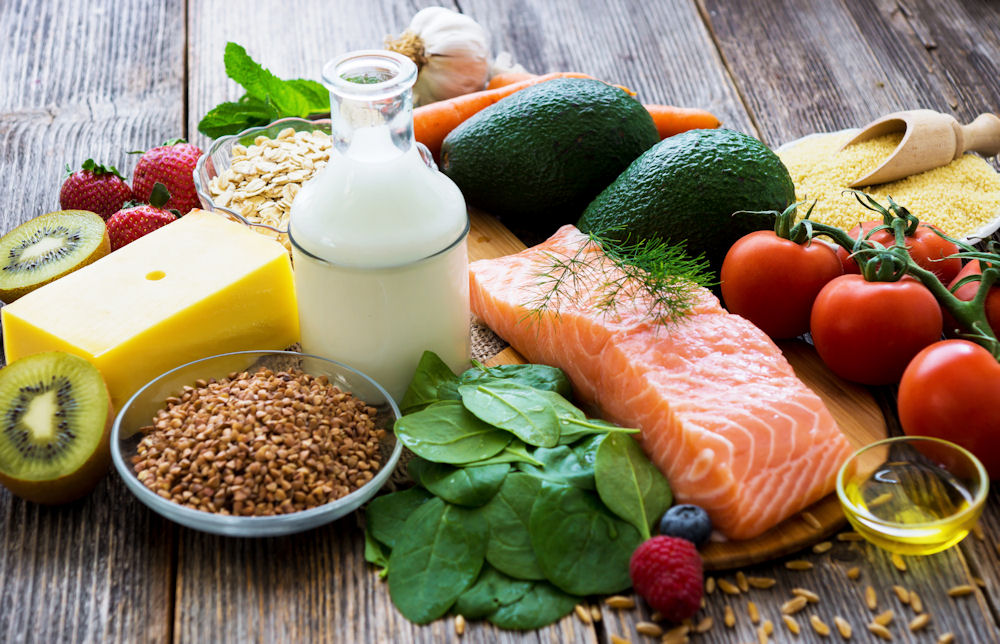Understanding the Link Between Nutrition and Addiction Cravings
For many individuals recovering from addiction, one of the toughest challenges is managing cravings. Whether it’s the desire to consume alcohol, drugs, or unhealthy foods, these cravings can often feel overwhelming and can significantly hinder progress. Interestingly, the foods we eat can play a powerful role in influencing these cravings.
Certain foods that reduce alcohol cravings can help curb the urge to drink, making it easier to maintain sobriety. Understanding the biochemical connection between nutrition and addiction treatment is key to discovering how specific nutrients and food choices can support the recovery journey and reduce the likelihood of relapse.
At Immersive Recovery in Encinitas, California, we provide men with the tools and resources they need to break the cycle of addiction and maintain sobriety.
The Impact of Addiction on Nutritional Health
Drug and alcohol addiction can significantly impact nutritional health by disrupting eating habits, nutrient absorption, and metabolic functions. Individuals struggling with addiction may neglect proper nutrition, leading to poor dietary choices and deficiencies. The relationship between addiction and nutrition is complex, as addiction can worsen nutritional status, while poor nutrition can intensify the negative effects of addiction, creating a harmful cycle.
Poor Eating Habits and Nutritional Deficiencies
Addiction often leads to neglecting healthy eating habits, with individuals opting for junk food, skipping meals, or prioritizing substances over nutrition. This can result in deficiencies in vitamins, minerals, and essential fatty acids, leading to weakened immunity, fatigue, and poor health.
Altered Metabolism & Digestion
Addiction interferes with metabolism and digestion. Substances like alcohol, tobacco, and drugs can cause gastrointestinal issues, malabsorption, and liver damage, impairing nutrient processing and metabolic functions.
Increased Risk of Obesity
Addiction can also contribute to excessive or compulsive eating behaviors, leading to obesity. Substance addiction, such as to food, alcohol, or drugs, may result in excess calorie consumption, increasing the risk of conditions like diabetes, hypertension, and heart disease.
Impact on Mental Health & Eating Disorders
Compromised Immune System & Recovery
Poor nutrition weakens the immune system, making the body more vulnerable to illness. For those recovering from addiction, proper nutrition is vital for healing, tissue repair, hormone balance, and mental health stabilization, aiding successful recovery.
Importance of Managing Food Cravings in the Early Stages of Recovery

Managing food cravings in the early stages of alcohol recovery is essential for restoring nutritional health and overall well-being. As the body adjusts to the absence of alcohol, cravings can become intense, seeking alternative forms of gratification. While these cravings may not disappear right away, with the right strategies, individuals can avoid overindulgence or poor dietary choices that may interfere with their recovery process.
Nutritional counseling during recovery provides essential tools to cope with cravings effectively. By focusing on balanced nutrition and ensuring the body gets the right nutrients, individuals can support healing, maintain progress, and reduce the likelihood of relapse throughout their alcohol recovery journey.
The Biochemical Connection: How Nutrition Affects Cravings
Nutrition directly impacts the brain’s regulation of hunger and satisfaction through neurotransmitters like dopamine and serotonin. A balanced diet supports the production of these neurotransmitters, helping curb cravings, while poor nutrition can disrupt their balance and trigger unhealthy food desires.
Neurotransmitter Production
Dopamine, the “feel-good” neurotransmitter, plays a key role in pleasure and reward. A diet rich in protein and healthy fats supports its production, reducing cravings. Serotonin, which regulates mood and satiety, is influenced by tryptophan-rich foods like turkey and eggs. A balanced production of these chemicals helps manage cravings and prevent unhealthy food choices.
Blood Sugar Regulation
Blood sugar regulation is crucial for controlling cravings. High-glycemic foods cause blood sugar spikes and crashes, leading to hunger and irritability. In contrast, a diet with complex carbohydrates, protein, and healthy fats stabilizes blood sugar levels, reducing cravings and preventing energy dips. By maintaining steady blood sugar, the body is less likely to experience hunger-driven cravings.
Foods that Reduce Alcohol Cravings

Certain foods have been known to trigger cravings for drugs and alcohol due to their impact on brain chemistry, particularly the reward system. Here are some foods that are commonly associated with stimulating cravings:
- Sugary Foods: High sugar releases dopamine, creating cravings similar to drugs and alcohol.
- Caffeine: Acts as a stimulant, mimicking the effects of cocaine and nicotine, causing dependency.
- Salty and Fatty Foods: Activate brain reward systems, similar to alcohol and drugs, increasing cravings.
- Refined Carbohydrates: Blood sugar spikes and crashes lead to mood swings, triggering cravings for alcohol.
- Cheese and Dairy Products: Casein breaks into casomorphins, stimulating opioid receptors and creating pleasure-driven cravings.
- Highly Processed Junk Foods: Sugar, salt, and fat combinations activate brain reward centers, leading to cravings.
- Alcohol-Infused Foods: Traces of alcohol can trigger cravings, particularly for individuals in recovery.
- Spicy Foods: May activate pleasure centers, triggering cravings for alcohol or drugs due to rewarding effects.
It’s essential for individuals who are in recovery or struggling with substance cravings to be mindful of these foods, as they can sometimes trigger a relapse or reinforce the desire for alcohol or drugs.
The Role of Specific Nutrients in Curbing Cravings
Specific nutrients can play a key role in reducing cravings and supporting addiction recovery.
- Protein: Helps control hunger and stabilize blood sugar, reducing cravings for unhealthy foods.
- Fiber: Slows digestion, promotes fullness, and reduces cravings by stabilizing blood sugar levels.
- Magnesium: Regulates blood sugar and reduces cravings, especially for sugar and chocolate.
- Healthy Fats: Promotes satiety, reduces snacking, and stabilizes blood sugar levels.
- Chromium: Helps improve insulin response, reducing sugar and carb cravings.
- Vitamin D: Low levels linked to increased carb cravings; boosts mood and appetite regulation.
- Omega-3 Fatty Acids: Balance blood sugar and reduce inflammation, curbing cravings.
- B Vitamins: Regulate energy and mood, reducing emotional eating and cravings for comfort foods.
By focusing on a balanced diet with these nutrients, you can help stabilize your blood sugar and control the hormonal and emotional triggers that lead to cravings.
The Gut-Brain Connection: How Gut Health Influences Cravings?

The gut-brain connection plays a pivotal role in addiction recovery, as the gut microbiome can directly impact mood, cravings, and behavior. Imbalances in gut bacteria have been linked to increased cravings for sugar, alcohol, and other substances. Restoring gut health through a balanced diet can help address these issues. A diet rich in probiotics and fiber can promote a healthier gut microbiome, which may help reduce cravings and improve mental well-being.
Fermented foods like yogurt, kimchi, and sauerkraut, along with high-fiber foods such as vegetables and whole grains, can help replenish beneficial bacteria in the gut. By supporting the gut microbiome, these foods contribute to better mood regulation and aid in addiction recovery, creating a positive feedback loop that benefits both physical and mental health.
Practical Tips for Incorporating Nutrition into Addiction Recovery
Nutrition plays a crucial role in supporting the recovery process by helping to stabilize mood, improve energy levels, and reduce cravings. A well-balanced diet can aid in emotional and physical healing, making it easier to focus on long-term recovery goals. Certain foods can help reduce alcohol cravings, making it easier to stay on track with recovery. Here are some practical tips to help you incorporate healthy eating habits into your journey:
- Start with a balanced diet: Focus on whole foods, including lean proteins, healthy fats, fruits, vegetables, and whole grains, to stabilize blood sugar levels and improve mood.
- Stay hydrated: Dehydration can worsen cravings, so it’s important to drink plenty of water and avoid sugary drinks.
- Incorporate healthy snacks: Eating small, balanced meals throughout the day can help curb cravings and prevent overeating.
- Food that reduces alcohol cravings: Include foods like leafy greens, nuts, seeds, and whole grains, which are rich in nutrients and help support the detox process, and hoe it can potentially reduce cravings for alcohol.
- Avoid trigger foods: Identify and avoid foods that may trigger cravings, such as processed or sugary foods, and replace them with healthier options.
- Seek professional help: Consider working with a nutritionist or dietitian who specializes in addiction recovery to create a personalized plan that supports both recovery and nutritional health.
Recover and Heal at Immersive Recovery

At Immersive Recovery in Encinitas, California, we understand that the path to recovery involves more than just overcoming substance dependence. It’s about healing the body, mind, and spirit. Our holistic approach to addiction recovery includes not only detoxification and therapy but also personalized nutritional support to ensure that our clients are nourishing their bodies as they heal.
We help men learn the vital role of nutrition in maintaining long-term sobriety and provide practical tools to build healthier habits for a sustainable recovery. Contact us today!





